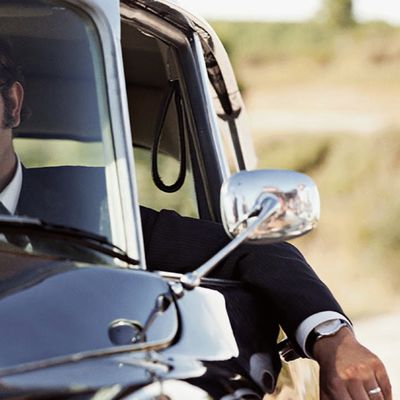
I suppose itÔÇÖs a no-brainer that a movie about the French side of The French Connection would be called just The Connection (though its French title is, oddly enough, La French). One must never judge a movie by its title, of course, but itÔÇÖs hard to shake the feeling that, for much of Cedric JimenezÔÇÖs film, the generic title matches the generic nature of the filmmaking. Based on true events and packed with detail, The Connection is dense, frantic, ambitious ÔÇö but it often feels like itÔÇÖs fast-forwarding through a dozen other films weÔÇÖve seen before, all of them better.
The Connection lays out the years-long cat-and-mouse game played by dedicated magistrate Pierre Michel (The ArtistÔÇÖs Oscar-winner Jean Dujardin) and powerful drug kingpin Gaetan Zampa (Gilles Lellouche). The latter is at the center of the drug network pumping narcotics across the Atlantic and into New York in the 1970s: He is seemingly so untouchable that he and his men conduct their business right out in the open, with much of the Marseille police force and judiciary in his pockets. For his part, Michel is a dogged public servant, chasing down every lead and even nipping and tucking the law when he has to. Unlike The French ConnectionÔÇÖs Popeye Doyle, however, his take-no-prisoners single-mindedness has less to do with a chip on his shoulder than with the fact that he understands the consequences of the drug trade; an early scene shows him trying to help a young girl addicted to heroin, and there are hints about an old gambling addiction.
Zampa, too, is human, however: He spends time with his family, worries about his organizationÔÇÖs finances, and has ambitions that reach beyond base criminality. Not unlike Stringer Bell in The Wire, he wants to go legit; the dope is just a means to an end. As these two menÔÇÖs high-stakes rivalry develops, the film cuts between them, at times even matching on action from one to the other. With their hawklike features and their dark, swept-back hair, the two even look like one another┬áÔÇö so much so that at one point, I thought ZampaÔÇÖs son was MichelÔÇÖs. ThatÔÇÖs not just a clever stylistic device. As in Michael MannÔÇÖs Heat, a key reference for this film, their fates are cosmically intertwined through the chase, a fact that becomes clearer as the film hurtles to its conclusion.
The Connection stretches across years, and its look changes in subtle ways as the music and styles of the era transform. (It helps that Zampa sinks much of his money into a fancy nightclub.) Throughout, there are nods to other films like Goodfellas, and the constant drumbeat of police raids and last-minute getaways and hits and double-crosses and whatnot reminded me occasionally of The Untouchables. Gosh, you might be saying, these are some fine films and shows being name-checked here: The French Connection, Heat, The Wire, The Untouchables, Goodfellas   Thats actually part of the problem: The Connection doesnt bring much new to the table, and it lacks the imagination and poetry of those films.
Until the end, that is. While much of the filmÔÇÖs frenetic rat-tat-tat of incident in the first 90 or so minutes left me cold (and even occasionally confused), the final act slows things down and gathers real force. Here, the charactersÔÇÖ epic back-and-forth finally reaches some kind of conclusion, and the film comes into its own, with a climax that is surprisingly powerful and unsettling. It may be too little too late, however. The Connection isnÔÇÖt a bad movie, but for most of its running time, it feels like a slickly-produced knockoff.


